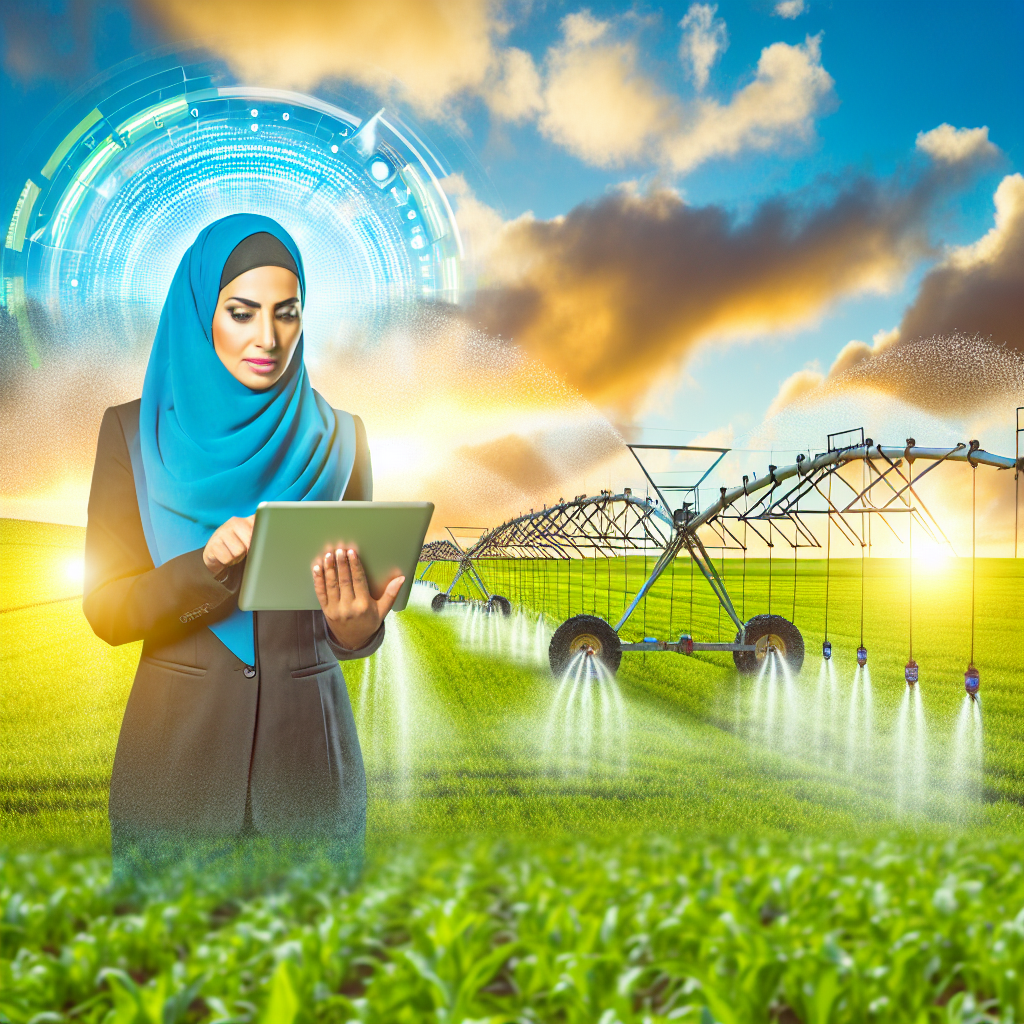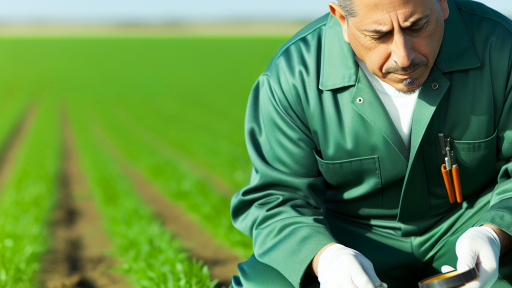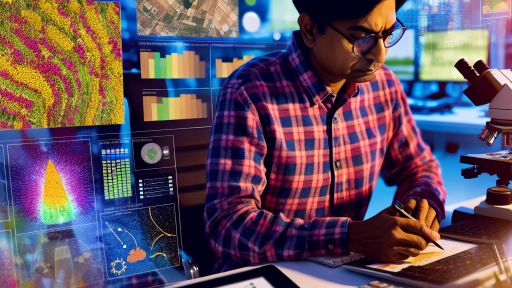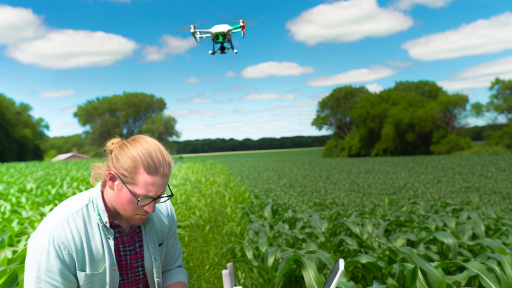Introduction to Smart Irrigation and its Importance in Modern Agriculture
Smart irrigation applications revolutionize how farmers manage water resources.
These systems use technology to optimize water usage efficiently.
As a result, they enhance crop yield while conserving water.
Technological Advancements in Irrigation
Modern irrigation systems incorporate sensors, valves, and controllers.
These devices work together to deliver precise watering schedules.
For instance, soil moisture sensors measure water levels in real time.
Consequently, the system adjusts watering based on plant needs.
The Role of Data in Smart Irrigation
Data collection plays a crucial role in smart irrigation systems.
Farmers can monitor conditions remotely through mobile apps.
Additionally, data analysis aids in predicting future water needs.
Therefore, informed decisions lead to better resource management.
Benefits of Implementing Smart Irrigation
Utilizing smart irrigation techniques offers numerous advantages.
- Significant reduction in water usage
- Increased crop yields and quality
- Improved efficiency in labor and resources
- Reduction of operational costs
Moreover, it enables farmers to adapt to climate variability.
Challenges and Considerations
Despite its benefits, implementing smart irrigation can pose challenges.
Initial costs for setup and technology integration can be high.
Transform Your Agribusiness
Unlock your farm's potential with expert advice tailored to your needs. Get actionable steps that drive real results.
Get StartedFurthermore, not all regions have access to reliable internet connections.
However, ongoing advancements are addressing these issues.
Future Trends in Smart Irrigation
The future of smart irrigation looks promising and innovative.
Integration with renewable energy sources is increasingly common.
Additionally, advancements in artificial intelligence enhance system efficiency.
As these technologies evolve, wider adoption among farmers is expected.
Overview of Technologies Enabling Smart Irrigation Systems
Introduction to Smart Irrigation
Smart irrigation optimizes water usage in agriculture.
This technology integrates sensors and data analytics.
It helps farmers make informed watering decisions.
Key Technologies in Smart Irrigation
Several technologies drive smart irrigation systems.
These include soil moisture sensors, weather stations, and automated controllers.
Sensitivity to Soil Moisture
Soil moisture sensors measure the moisture level in the soil.
This data informs when to irrigate crops.
By using this technology, farmers reduce water wastage.
Weather Stations
Weather stations collect real-time weather data.
This information predicts irrigation needs effectively.
They monitor rainfall, temperature, and humidity.
Automated Controllers
Automated controllers enhance irrigation efficiency.
They adjust water flow based on sensor data.
These controllers can be programmed for specific watering schedules.
Benefits of Smart Irrigation
Smart irrigation systems offer numerous advantages.
- They conserve water and energy resources.
- These systems enhance crop health and yield.
- Farmers save time on manual irrigation tasks.
Future Developments in Smart Irrigation
The future of smart irrigation looks promising.
Emerging technologies will improve data accuracy.
Additionally, machine learning will analyze trends for better predictions.
Showcase Your Farming Business
Publish your professional farming services profile on our blog for a one-time fee of $200 and reach a dedicated audience of farmers and agribusiness owners.
Publish Your ProfileAs a result, farmers will continue to optimize resource use.
Benefits of Smart Irrigation
Water Conservation
Smart irrigation significantly reduces water waste.
This technology enables farmers to use water more efficiently.
By monitoring soil moisture, systems apply water only when necessary.
Consequently, farmers can manage water resources wisely.
This leads to improved crop yields and healthier plants.
Increased Efficiency
Automation enhances the efficiency of irrigation practices.
Farmers can set schedules to optimize water delivery.
Smart sensors provide real-time data for informed decisions.
This responsiveness reduces the time spent on manual adjustments.
Overall, workflows become more streamlined and effective.
Cost Savings
Investment in smart irrigation pays off in reduced costs.
Lower water usage translates to lower utility bills.
Moreover, improved crop health can lead to higher profits.
Farmers often rediscover financial resources previously lost to wastage.
Environmental Impact
Smart irrigation supports sustainable agricultural practices.
By conserving water, it helps to protect local ecosystems.
Farmers contribute to better water quality through reduced runoff.
This creates a healthier environment for agriculture and wildlife alike.
Uncover the Details: Data-Driven Irrigation Strategies for Farmers
Impact of Smart Irrigation on Crop Yield and Quality
Enhancing Efficiency
Smart irrigation systems optimize water usage in agriculture.
By using real-time data, they adjust irrigation schedules dynamically.
This approach minimizes waste and conserves water resources.
As a result, crops receive the precise amount of water they need.
This directly leads to healthier plants and increased yields.
Improving Crop Quality
Smart irrigation contributes to improved crop quality significantly.
When plants receive adequate hydration, their resilience increases.
Healthy plants have better coloration, taste, and nutritional value.
Moreover, consistent watering reduces the incidence of diseases.
Farmers report tastier and more marketable produce.
Data-Driven Decisions
The integration of technology allows farmers to make informed decisions.
Data analytics provide insights into soil moisture levels and weather patterns.
With this information, farmers can plan irrigation more effectively.
Consequently, they can maximize both yield and profitability.
Farmers like Ellen Morales have transformed their operations using these tools.
Cost Savings
Implementing smart irrigation systems leads to significant cost savings.
These systems reduce labor costs through automation.
Additionally, water conservation translates to lower utility bills.
Farmers enjoy a higher return on investment in the long run.
Jason Fields, a regional farmer, noticed a substantial decrease in costs.
Showcase Your Farming Business
Publish your professional farming services profile on our blog for a one-time fee of $200 and reach a dedicated audience of farmers and agribusiness owners.
Publish Your ProfileEnvironmental Benefits
Smart irrigation also supports sustainable agricultural practices.
By using less water, these systems help conserve vital resources.
Moreover, they reduce runoff, minimizing nutrient pollution in nearby waterways.
As a result, ecosystems adjacent to farmlands remain healthier and thriving.
Farmers adopting these practices participate in better environmental stewardship.
Learn More: Smart Irrigation Systems in Precision Agriculture
Integration of IoT and Sensor Technology in Irrigation Management
Overview of Smart Irrigation
Smart irrigation systems leverage advanced technology for effective water management.
These systems use IoT devices to monitor various environmental factors.
Consequently, they optimize water usage significantly.
Benefits of IoT in Irrigation
IoT technology enhances precision in water application.
This precision helps reduce waste and lower costs.
Additionally, it improves crop yields through better water management.
The Role of Sensor Technology
Various sensors measure soil moisture, temperature, and humidity.
These measurements provide real-time data for irrigation decision-making.
Thus, farmers can adjust irrigation schedules based on actual needs.
Cloud-Based Data Management
Cloud technology allows farmers to access data anytime, anywhere.
It enables easy analysis of historical trends for future planning.
Moreover, farmers can share insights with peers and improve practices.
Case Studies of Successful Implementations
Many farmers have implemented smart irrigation successfully.
In California, Maria’s farm reduced water usage by 30% using smart sensors.
Similarly, David’s vineyard increased grape quality while conserving water.
Challenges and Considerations
Adopting smart irrigation technologies can be daunting for some farmers.
Initial costs and technical knowledge may pose hurdles.
However, many resources and support systems are available to assist.
Uncover the Details: Real-Time Crop Monitoring with Advanced Sensors

Case Studies: Successful Implementation of Smart Irrigation in Different Regions
California’s Precision Agriculture
In California, farmers have adopted smart irrigation systems effectively.
These systems use sensors to monitor soil moisture levels.
By automating irrigation, they reduce water waste significantly.
Consequently, many farmers report healthier crops and increased yields.
Intelligent Systems in Israel
Israel is renowned for its advanced irrigation technologies.
Farmers utilize drip irrigation systems to optimize water use.
This method delivers water directly to the plant roots.
As a result, crop production has soared despite the arid climate.
Smart Irrigation in Australia’s Outback
In Australia, smart irrigation has transformed agricultural practices.
Remote sensors provide real-time data on weather conditions.
Farmers adjust water application based on immediate needs.
This flexibility improves both efficiency and sustainability.
Innovative Approaches in the Netherlands
The Netherlands leads in sustainable agriculture through smart irrigation.
Farmers implement precision watering techniques based on crop requirements.
This practice conserves water and enhances productivity.
Showcase Your Farming Business
Publish your professional farming services profile on our blog for a one-time fee of $200 and reach a dedicated audience of farmers and agribusiness owners.
Publish Your ProfileMoreover, it contributes to the country’s reputation for high-quality produce.
Emerging Technologies in Texas
In Texas, smart irrigation technologies are gaining traction.
Farmers are exploring drone technology for efficient irrigation management.
Drones assess crop health and monitor irrigation effectiveness.
This integration enhances decision-making and cultivates resilience.
Uncover the Details: Installing Smart Irrigation: Tips for Farmers
Challenges and Limitations of Smart Irrigation Adoption
High Initial Costs
Smart irrigation systems often come with a significant price tag.
Farmers may struggle to afford the upfront investment.
Additionally, many systems require ongoing maintenance costs.
These financial barriers can limit widespread adoption.
Technical Complexity
Implementing smart irrigation technology demands technical expertise.
Farmers must often learn new software and equipment operations.
Moreover, troubleshooting technical issues can be time-consuming.
This complexity can discourage farmers from adopting new systems.
Lack of Infrastructure
In many rural areas, infrastructure to support smart irrigation is lacking.
Poor internet connectivity can prevent effective system operation.
Additionally, insufficient access to reliable power sources poses challenges.
These infrastructural issues hinder farmers’ ability to adopt smart technologies.
Limited Awareness and Education
Many farmers are unaware of the benefits of smart irrigation.
Educational resources on these technologies may be limited.
Moreover, farmers need training to implement and manage these systems.
This knowledge gap slows down the adoption of innovative practices.
Cultural Resistance
Some farming communities resist change due to tradition.
Established practices may feel safer than adopting new technology.
As a result, farmers may cling to outdated irrigation methods.
Overcoming this cultural resistance requires targeted outreach efforts.
Environmental Considerations
Smart irrigation systems must consider local environmental conditions.
Water management strategies need to align with regional climate challenges.
Additionally, improper system management may lead to unforeseen consequences.
This requires careful planning and execution from farmers.
Future Trends in Smart Irrigation Technology and Sustainability Practices
Advancements in Smart Irrigation Systems
Smart irrigation systems employ technology for optimal water usage.
These systems integrate sensors and software for real-time monitoring.
Farmers benefit from automated scheduling based on weather conditions.
This technology promotes efficient water distribution throughout the field.
Integration of Weather Forecasting
Incorporating weather data enhances irrigation decision-making.
Farmers can adjust irrigation schedules based on predicted rainfall.
As a result, resources are conserved, reducing operational costs.
Data Analytics and Machine Learning
Data analytics play a crucial role in smart irrigation.
Machine learning models predict the optimal moisture levels required for crops.
Consequently, farmers make informed decisions regarding water applications.
Showcase Your Farming Business
Publish your professional farming services profile on our blog for a one-time fee of $200 and reach a dedicated audience of farmers and agribusiness owners.
Publish Your ProfileEnvironmental Sustainability Practices
Smart irrigation contributes to environmental sustainability efforts.
By minimizing water waste, these systems protect local ecosystems.
Furthermore, they help sustain soil health by preventing overwatering.
Economic Benefits for Farmers
Smart irrigation systems reduce costs associated with water and labor.
Farmers witness increased yields due to precise water management.
Ultimately, these advancements offer a competitive edge in the market.
Future Innovations in Irrigation Technology
The future holds promising innovations in smart irrigation technology.
Developers are exploring AI-powered solutions for real-time adjustments.
Emerging technologies will enhance efficiency and user-friendliness.
Additional Resources
AI in Agriculture — The Future of Farming
Precision Agriculture: Benefits and Challenges for Technology …




